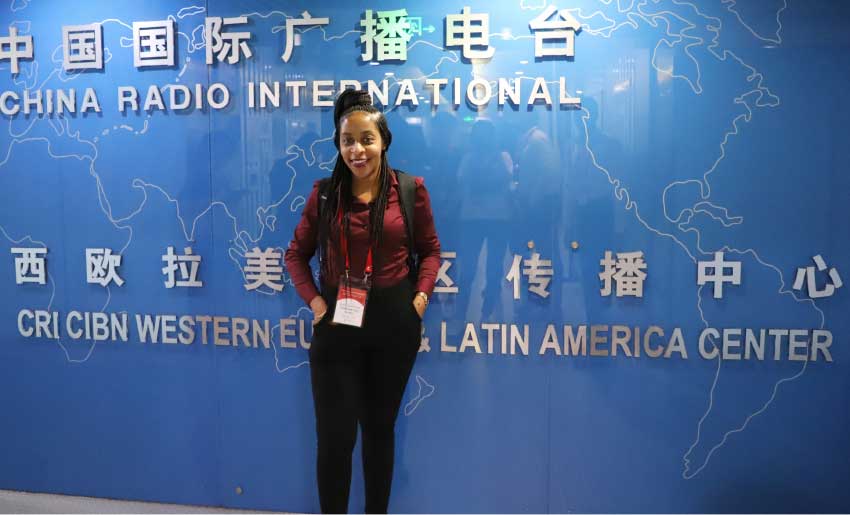
This past July I had the privilege of spending 10 days in China, as part of the 2019 Seminar for English Speaking Journalists hosted by the China International Publishing Group and the China International Development Cooperation. During the amazingly informative seminar which included several tour stops, I along with 12 other writers and media personnel from the Caribbean experienced many aspects of Chinese history, culture, and economic expansion through media. Once the visit came to an end, the general consensus from participants was that we could possibly write a book speaking to the fullness of what we witnessed, but of everything, here are some of the things that stood out most:
1. Chinese are family oriented
To the outsider looking in, it is immediately clear that this is a society of inclusiveness, particularly within the family unit. Our first introduction was through snippets of Chinese new media depicting cultural lineage from multiple generations in one household. Prioritizing the needs of children is paramount to the overall framework of the society, as evident in the child friendly spaces in the various establishments. This is also evident in the media focus on social and educational TV programming.
2. Humility is gold
In many instances, duty took preference over praise. Most people I encountered in their professional spaces were more focused on the diligent completion of their tasks as a way of enhancing my experience; demonstrating the overall values of Chinese culture.
3. Food security is vital
Caribbean countries are categorized as developing and vulnerable states; as such we are continually faced with challenges related to food security. Solving this problem depends upon the sharing of knowledge and expertise of developed nations like China. The level of focus placed on the agricultural industry and food quality and safety is unparalleled. The investments made in the manufacturing and even automobile/trucking industries, shows China’s commitment to producing high quality products. More importantly, the sustainability of its people, as the world faces the impact of globalization and climate change remains the focus.
4. Cultural preservation lends to the longevity of people
The passing down of rituals and customs is significant for the preservation of every society. A large portion of our trip was focused on learning about the history of the ancient people, and how this has served as a compass, guiding the way to the future. Though China has seen many technological advancements, it has not lost its intrinsic values.
5. Building a technological network that is reshaping new media
In the 21st century, technology, data, and scientific advancements are changing the world as we know it. The use of technology to modernize, reform, globalize, and connect people and nations should not be underestimated. With this insight, China’s approach in revolutionizing new media through the use of cloud computing, social media platforms, artificial intelligence, and people empowerment, serves as a beacon to the rest of the world. China must be applauded for leaping well into ‘2025’, in 2019. We are all excited to see the new technologies that will emerge from this region.
In closing, I would like to thank China International Publishing Group and the China International Development Cooperation Agency for extending this gracious opportunity to remove our Western lenses, and to see China firsthand. I will use these learnings to reform my life and work environments, but most importantly, to share the China experience with my Saint Lucian counterparts.












